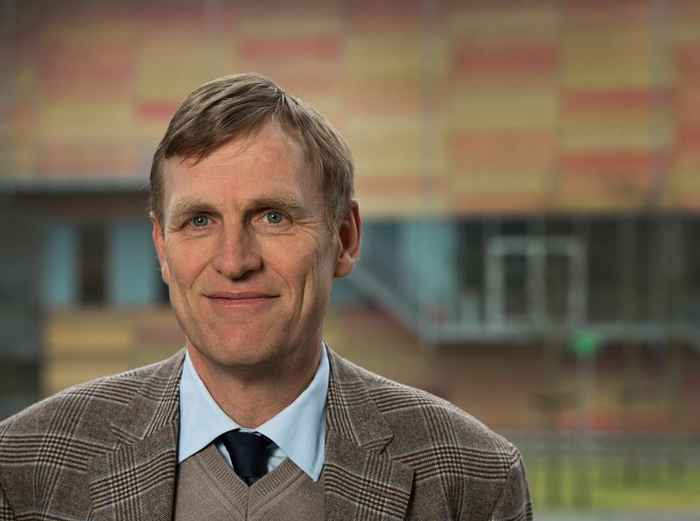Wybren Jan Buma appointed as scientific director of the Van 't Hoff Institute for Molecular Sciences
25 June 2021

The Van 't Hoff Institute for Molecular Sciences aims to push the boundaries of chemistry by performing internationally recognised, curiosity-driven and application-driven science regarding the behaviour of molecules in increasingly complex processes and systems. Its knowledge and expertise are being utilised and expanded by engaging in collaborative research efforts that address challenges in society and industry.
Exciting years ahead
Wybren Jan Buma looks forward to continuing the course developed under Peter Bolhuis since July 2019. “We have exciting years ahead of us", he says, referring to the three overarching strategic and innovative research areas that have been identified under the directorship of Bolhuis. These are in line with the strategic plan of the UvA Science Faculty and are strongly connected to the grand challenges society is facing, but at the same time have a strong basis in fundamental research. "We are now implementing strategies to optimize our efforts in these areas", says Buma, "and you can feel how this really resonates within our staff and gives new enthusiasm." He expects the combined research efforts based on the - in many aspects unique - expertise of the institute will result in significant contributions to science and society.
Buma is also quite pleased with the number of new, young staff members that have recently been appointed. "They bring exciting new research lines that cross the traditional borders of expertise. And there are more to come. We are happy to welcome these 'next-generation researchers' and are confident they will bring research at the institute and the faculty to the next level." Finally, Buma is looking forward to the completely new Chemistry curriculum that will start the coming academic year. "This curriculum links more strongly to ‘new’ science and offers much more freedom than before. I think it will be really appealing to students and result in an increase in intake. All in all, I am proud to be the scientific director of this top institute for the years to come, and I will help it to make the most of all these new developments."
A healthy and dynamic institute
Looking back, departing director Peter Bolhuis concludes that notwithstanding the rather tough past Covid-dominated year, the institute is in good shape - a conclusion that has been confirmed by the recent positive midterm review. He is looking forward to be able to focus more on his own research now: "Next to the running projects, which for the past years have not been receiving the attention they deserve, I'm going to concentrate my research efforts on developing new directions in the realm of computational chemistry. One thing that I am particularly interested in, is the emergence of complexity in chemical non-equilibrium systems, and how one can think about this in terms of a statistical description of dynamical pathways. This has not only applications in the understanding, control and design of novel (soft) materials and processes, but ultimately also in understanding the emergence of living systems." The future of the institute looks good, Bolhuis concludes. "Wybren Jan Buma is well prepared to take over as director, and he has positive plans. I wish him and all of the institute a great time and lots of success."